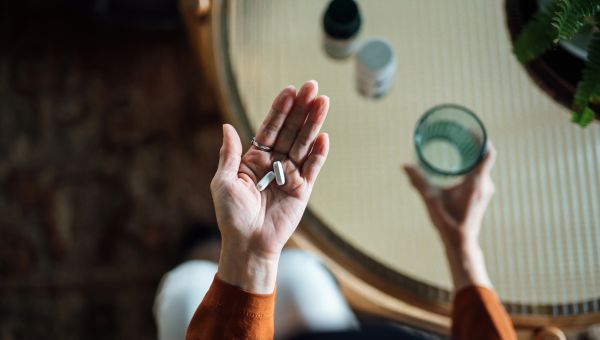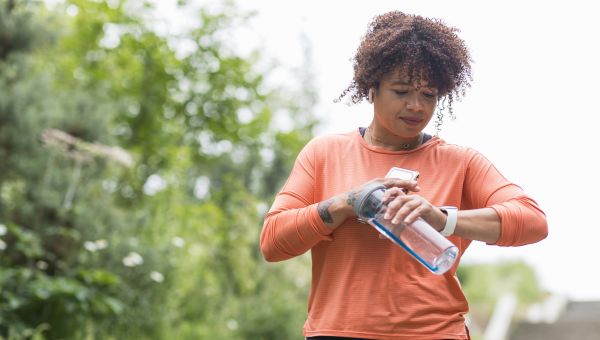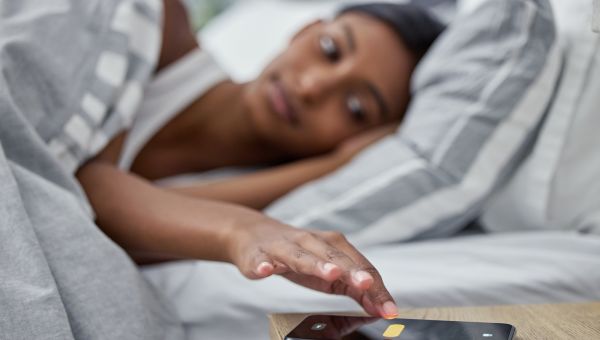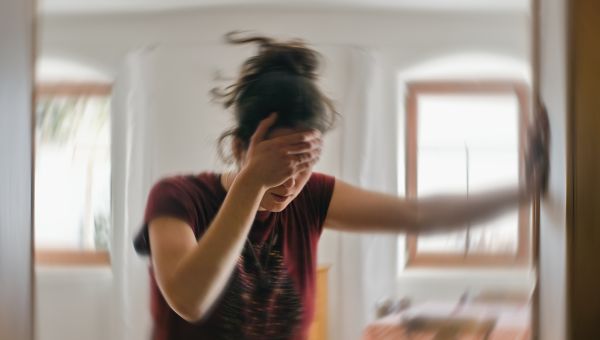5 ways to lower your stroke risk now
About 80 percent of strokes may be prevented by making healthy lifestyle changes.
Updated on February 7, 2025

A stroke occurs when blood flow to the brain is blocked or there is bleeding in the brain. Without much warning, it can gravely affect your ability to move, talk, and think. In the United States, stroke kills one person every 3 minutes and 11 seconds.
Yet, roughly 80 percent of strokes are preventable, according to the American Heart Association. And while you can’t change contributing factors such as your age, sex, or family history, there are important steps you can take to protect yourself. Here are five ways to start today.

Take your medicine
If your healthcare provider (HCP) has prescribed medication for diabetes, high cholesterol, atrial fibrillation (AFib), or high blood pressure—take it. These are all conditions that can raise your risk for stroke.
“It’s so important to take your meds and not stop until the physician says so,” explains Kristy Chambers, RN, MSN, a stroke care coordinator in Utah. She adds that many people don’t want to take medications for so-called “silent” conditions, which are health issues without noticeable symptoms such as high blood pressure. But as these drugs treat these conditions, they lower your chances of stroke, too.

Get moving
Being sedentary, or not getting much movement, increases the risk of stroke. Being regularly physically active, on the other hand, significantly reduces your risk.
Aerobic exercise—also called cardio—raises your heart rate and gets your blood pumping. Experts recommend doing at least 150 minutes of moderate-intensity cardio or 75 minutes of vigorous cardio each week. It should ideally be spread over several days. “Moderate” can mean brisk walking, biking, dancing, or yard work. “Vigorous” includes things like running, swimming laps, or jumping rope.
Don’t have a continuous 30 minutes each day to spare for exercise? Try three 10-minute walks instead. Any movement can help.

Check your sleep habits
Those snores, snorts, and gasps characteristic of sleep apnea can do more than keep you awake at night. Sleep apnea is a condition where breathing is interrupted during sleep. It can strain the heart, causing high blood pressure and an irregular heart rhythm. Eventually, those problems can lead to stroke.
Not sure if you might have sleep apnea? Try recording yourself at night. Do it when you’re alone, so other noises don’t creep in. Listen for loud snoring or gasping. You can also look for other symptoms of sleep apnea, which may include:
- Being sleepy during the daytime
- Having headaches in the morning
- Feeling anxious, depressed, or irritable
- Having trouble concentrating or remembering things
If you think you could have sleep apnea, talk with an HCP or ask for a referral to a sleep specialist. There are many effective treatments, from a continuous positive airway pressure (CPAP) machine to lifestyle changes to surgical treatments.

Go Mediterranean
Following the Mediterranean diet has long been linked to a significantly lower risk of stroke. “It’s the highest-recommended diet,” says Chambers.
The diet is rich in fruits and veggies, whole grains, legumes, nuts, fish, and poultry. It also limits red and processed meats, salt, and butter, too much of which can lead to hypertension, unhealthy cholesterol levels, and stroke.
Some foods found in the Mediterranean diet can be expensive, such as fish, olive oil, and nuts. But there are ways you can enjoy its benefits while staying within your budget.

Try to establish a work-life balance
People who work 55 hours or more every week are 35 percent more likely to have a stroke than those with regular 9-to-5 jobs, according to the World Health Organization (WHO). Men and middle-aged workers are particularly at risk.
If the stress of your job is getting to you, look for ways to improve your work-life balance. If you can’t cut back on work hours, there are ways you can try to manage your stress levels while on your shift. Try these tips from Chambers to relax:
- Use an app that reminds you to stand up every hour.
- Take a 10-minute walk to boost circulation, preferably in the sunshine.
- Sit in a quiet, dark room for five minutes to unwind.
These little changes can calm your mind and your body by bringing down your blood pressure.
When you’re not at work, make sure to connect with loved ones, neighbors, your faith community, or other local organizations. Aim to exercise each day, eat a healthy diet, and get adequate sleep. And if you need more support with managing stress, let your HCP know, so they can point you to resources that might help.

Know the signs
Stroke protection includes recognizing its symptoms. These may include the sudden onset of any of the following:
- Weakness or numbness in the face, arm, or leg, often on one side of the body
- Severe headache
- Trouble seeing in one or both eyes
- Trouble walking, with or without dizziness
- Confusion or trouble speaking or understanding speech
A helpful acronym to remember what to look for is F.A.S.T.:
- Face: Is one side of the face drooping when the person smiles?
- Arms: When the person raises both arms, is one weak or drifting downward?
- Speech: Ask the person to say a simple phrase. Does it sound slurred or odd?
- Time: Don’t delay—if these signs are present, call 911 or your local emergency number.
Always note the time symptoms started. Doing so will help HCPs decide on treatments, says Chambers.

Williamson, Laura. 5 critical steps to help prevent a stroke. American Heart Association. May 5, 2021.
National Heart, Lung, and Blood Institute. What Is a Stroke? May 26, 2023.
Centers for Disease Control and Prevention. Stroke Facts. October 24, 2024.
Centers for Disease Control and Prevention. Stroke: Preventing Stroke. May 15, 2024.
Hooker SP, Diaz KM, Blair SN, Colabianchi N, et al. Association of Accelerometer-Measured Sedentary Time and Physical Activity With Risk of Stroke Among US Adults. JAMA Netw Open. 2022 Jun 1;5(6):e2215385.
Centers for Disease Control and Prevention. What Counts as Physical Activity for Adults. December 6, 2023.
American Heart Association. Sleep Apnea and Heart Health. June 26, 2023.
American Heart Association. What goes into a Mediterranean diet, and how to get started. August 23, 2022.
Laffond A, Rivera-Picón C, Rodríguez-Muñoz PM, Juárez-Vela R, et al. Mediterranean Diet for Primary and Secondary Prevention of Cardiovascular Disease and Mortality: An Updated Systematic Review. Nutrients. 2023 Jul 28;15(15):3356.
Lakkur S, Judd SE. Diet and Stroke: Recent Evidence Supporting a Mediterranean-Style Diet and Food in the Primary Prevention of Stroke. Stroke. 2015 Jul;46(7):2007-11.
World Health Organization. Long working hours increasing deaths from heart disease and stroke: WHO, ILO. May 17, 2021.
Centers for Disease Control and Prevention. How Right Now: Stress. April 10, 2024.
Centers for Disease Control and Prevention. Stroke: Signs and Symptoms of Stroke. October 24, 2024.
More On


video

article


video


video


video
